Tips and Tricks for Learning College Math
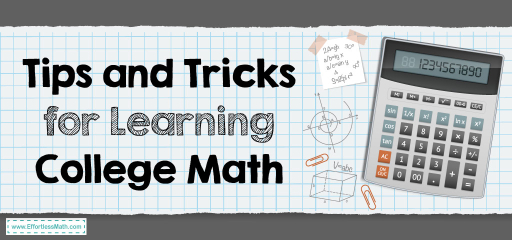
This means that only by practicing solving the questions will you learn the steps to solve the questions. You will realize what to do initially and the subsequent actions, and the subsequent actions, and so on. For additional educational resources,.
It is well understood that memorizing a formula or a definition will not guarantee a high score in mathematics: one has to know how to apply this knowledge in various situations. Search for as many practice questions and past papers as possible from your textbook, your teacher, or any other source. You do not need to have a full review session daily; the bare minimum would be the homework that you are given. For additional educational resources,.
Make a Study Schedule
Draw a weekly timetable of working hours, class timetables, other engagements, and time for family and leisure. After that, use a highlighter to underline ‘STUDY TIME.’ Studying should become one of the habits in your life. This guide also contains a blank schedule on the center pages. Complete the following schedule and carry it with you. If you like, reproduce the blank schedule given on this page. For additional educational resources,.
Use a new form every semester or when the individual’s changes occur significantly. It has been found that the amount of time available to study on the weekends is much greater than on weekdays. But when it comes to mathematics, for instance, it is impossible to study only on the weekend and expect to excel in the subject. For additional educational resources,.
Math needs to be learned EVERY DAY, no matter if it is 30 minutes, an hour, or more. If you have to cram most of the week’s material on one or two days of the week, divide your study sessions. Learn a topic for one hour, and then take a break. Engage in some other activity for 10 to 15 minutes, and then get back to studying. Spend a reasonable amount of time on all your subjects so that none of them is neglected when you are studying. For additional educational resources,.
Do Not Forget That Maintaining Consistency Is Very Important
Many topics in mathematics are connected; therefore, you should revise all the class material regularly, especially if you are to take the final exam in the class. One of the most effective methods of revising content over long durations of time is, more often than not, a challenge to the Curve of Forgetting, which explains how we retain what we learn. I understand that it may look tiring and even boring to review topics that were covered earlier in the semester, but believe me, in the future, you will be happy when finals are near. For additional educational resources,.
Summarize Concepts and Procedures
After all the homework is done, review what you have learned and the process you have learned. When writing these concepts and procedures in your terms and the terms you understand, they assist in the reinforcement of learning. For additional educational resources,.
Another good practice is to jot down the procedures together with the words and symbols that one has been using on individual index cards. This will help you develop a portable summary of all you have learned during your studies. You can take this with you and study from your cards in those ‘hidden pockets’ of time that you may come across. For additional educational resources,.
Formula Sheet Is Your Best Friend
Perhaps one of the best but least used tips on studying math is using the formula sheet available to you during your examination. The only time when the formula sheet is also accessible outside the exam room and should used when solving practice questions in the course of learning.
Read Before Class
As such, comprehending the language or the codes of mathematics is one important way of doing mathematics. Skim through the parts of the book to be covered in the class (this may be best done the previous night). Be very careful with the new terms and symbols you are going to encounter. The underlined or put into italics, or draw rectangles around these.
You are likely to understand what your instructor is saying in class through prior preparation of the words. The words and symbols will not be entirely unfamiliar to you, so you will be able to focus more on your ideas and abilities. Sometimes, the instructor may instruct you not to read certain parts of the book or a chapter that is to be studied. This should be because he or she believes that the textbook will rather hamper than assist in comprehending the material. In these cases, do as your instructor instructed you to do.
Write the Mathematical Procedures
While doing your homework (including the examples), consult your notes and write the procedures you employ in doing an exercise. Many procedures are often involved in any problem touching on that particular concept, let’s say solving an equation. The more we write about what we are doing, the more we are to recall it. You will often not have to write a procedure after you have mastered it, and you can perform it regularly.
Read the instructions carefully as to how the exercises are to be done. To do that, you need to know what the directions mean and what procedures are employed to follow the directions. The directions frequently employ the terminology of mathematics; thus, it is crucial to identify the terms used (for instance, terms like ‘simplify’ or ‘solve’). Moreover, the directions to exercises may require you to do something that you would otherwise not expect to do. For instance, an equation may be provided, and you might be requested to explain if it is linear, quadratic, exponential, and the like, and not to solve it.
The Bottom Line
In a nutshell, that is what mathematics is: a subject that cannot be passed without suffering it. You will only know and learn when you use your head to crack these questions on your own. There is even fun in trying to get to your destination through dancing as you dance! Most of the math concepts and skills are progressive; nevertheless, it is not uncommon to see a particular skill used slightly differently later in a particular chapter. By “going back” to these areas of the course, you will “recycle” through material that has already been presented and, thus, be reminded of these particular skills. In addition, by moving back, you will be able to revise vocabulary, symbols, and directions for some exercises that may not be used in other sections. You should do several exercises when you do this. Do not just do exercises from one section.
Related to This Article
More math articles
- 5 Awesome Tips to Boost Your Child’s Math Skills Easily!
- Using Number Lines to Add Two Integers with Different Signs
- Full-Length SAT Math Practice Test
- Full-Length 8th Grade FSA Math Practice Test
- How to Prepare for the CBEST Math Test?
- 6th Grade FSA Math Worksheets: FREE & Printable
- How to Identify Equivalent Expressions?
- How to Solve Rational Exponents and Radicals?
- Top 10 8th Grade PSSA Math Practice Questions
- 10 Most Common 8th Grade MEAP Math Questions

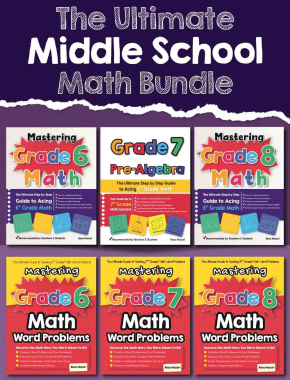
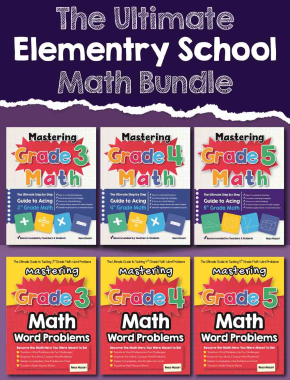
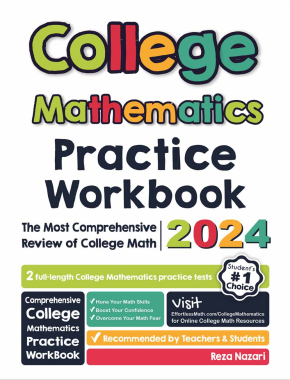
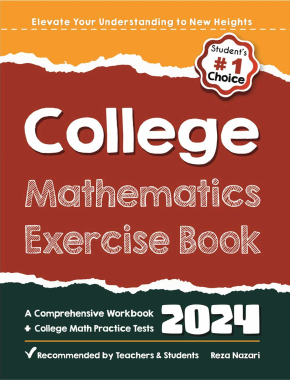
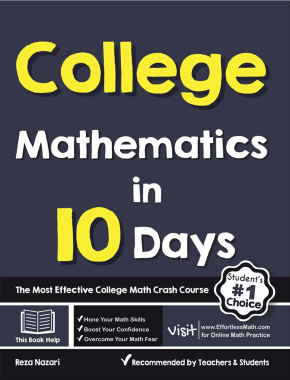
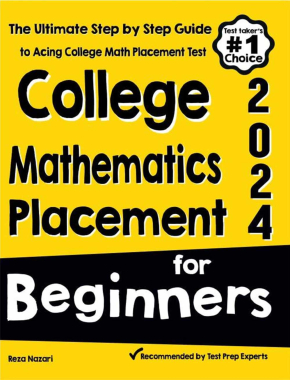
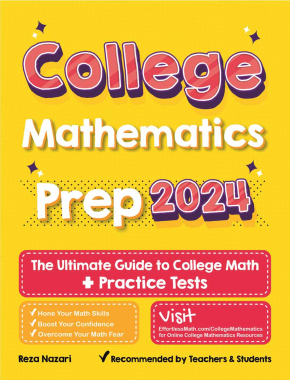
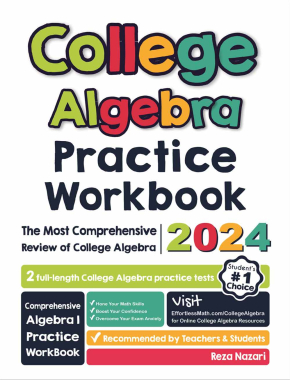
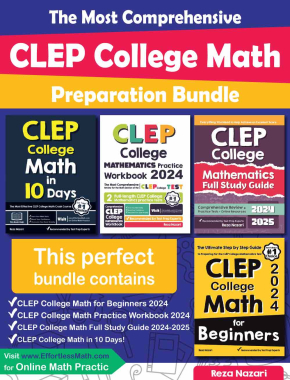
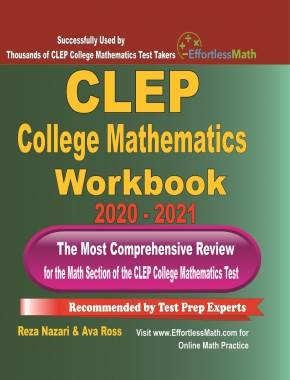
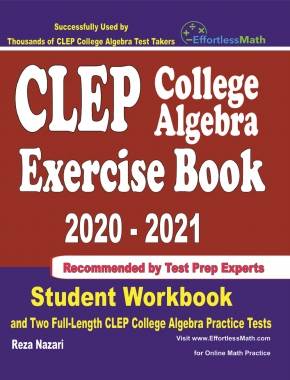
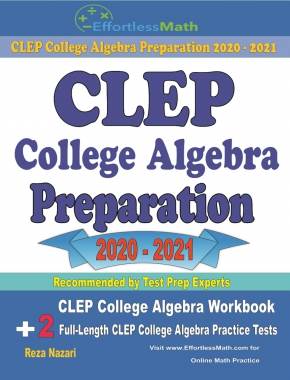
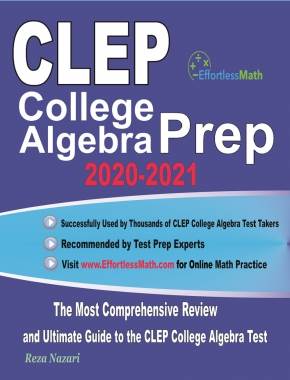
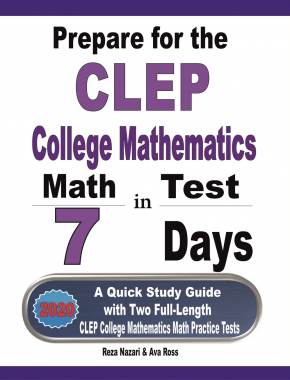
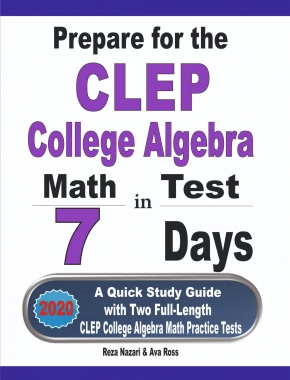
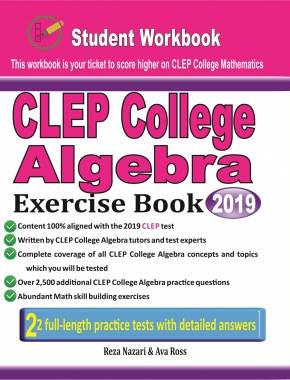
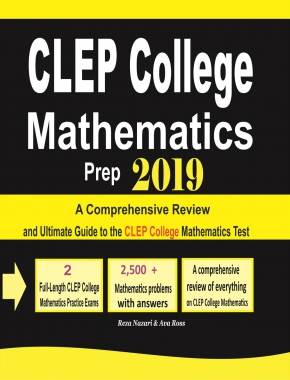




















What people say about "Tips and Tricks for Learning College Math - Effortless Math: We Help Students Learn to LOVE Mathematics"?
No one replied yet.